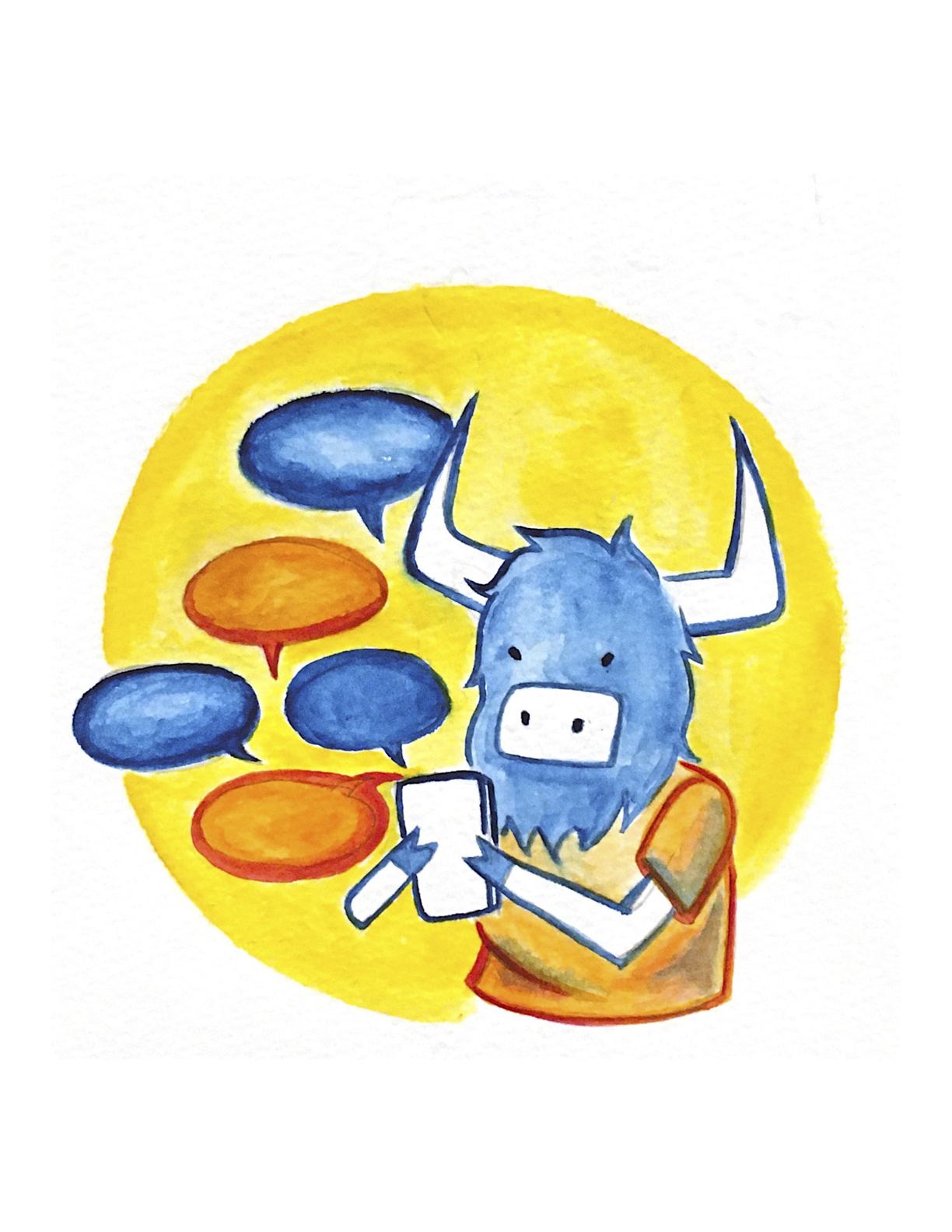
Yik Yak, the anonymous, localized message-sharing app, has made its comeback for a new generation of college students. The app, removed from app stores in 2017, returned in August 2021. Prior to its removal, student groups on campuses across the country, from Clemson University to Lewis & Clark, protested and petitioned for it to be banned in the wake of violent, racist, misogynistic threats and “jokes” that often circulated on the app. In 2015, LC protests specifically concerned racially charged threats, with administration eventually involving the police in response. Then, Yik Yak was gone.
The test the app faces upon its return, especially at LC, is whether or not it is doomed to repeat history. Is an anonymous app, localized within a five-mile radius, set to fail by design as the perfect recipe for rampant harassment? Or can it, alongside other anonymous student accounts on various social media platforms, bring a fraught student body together after we have been pushed apart by months of isolation? I have hope for the latter. I believe that, if we use these tools wisely (or at least with respect to our peers), we can create something of a shared diary, an outlet for all of our hopes and fears.
Part of this hope is thanks to the app’s upgraded harassment and mental health resources. Yik Yak’s return was accompanied by “Community Guardrails” that claim to target harassment and bullying on the app, as well as “Stay Safe Resources” and “Mental Health Resources” on the app’s webpage.
Still, as with all social media platforms, the power to create community is in the hands of the users. On Yik Yak, users have some level of control over the environment, enabled by the downvote feature. A “yak” which receives five or more downvotes is removed. However, thanks to the app’s anonymity, discussions can go either way. But the posts that I have seen on the app, filled with humor, drama and angst, convey a sense of deep sympathy and humanity. The common thread connecting the vast majority of these posts is a shared sense of suffering. Breakups are carefully charted. My feed is often a well of loneliness, filled with attempts at humor more akin to screaming into the void than actual jokes.
I believe that there is a real potential for a community here on Yik Yak. Recurring figures emerge in the comment section (ask any regular user about the cherry emoji and its mysterious disappearance). Students work together to solve their school-related problems and older users do their very best to provide some reassurance that life gets better. From issues as frivolous as messy bathrooms to ones as serious as feelings of impostor syndrome and depression, I know there is someone out there who is experiencing the same thing.
Yik Yak’s trend of turning the woes of real life into a digital community continues well beyond that specific app. This Yik Yak ethos extends to multiple LC gimmick accounts that serve as humorous outlets for the everyday frustrations of student life. These accounts use humor to show students (myself included), that they are not alone.
These pages, typically found on Instagram, similarly embrace anonymity and humor as a tool for unification, enabling LC students to share in their misfortunes. Some of the more popular pages share photographs submitted by students of unpleasant LC bathrooms (@shittylctoilets) or experiences at Fields Dining Hall (@cursedbonimages), as well as an “affirmations” account that delves into the niche fears and desires of the student body (@lcaffirmations). The majority of these posts are presented in a detached, humorous style that reinforces the absurdity and anonymity ingrained in these accounts.
Despite the feeling of absurdity and detachment, all of these pages place student experiences front and center, giving a feeling of catharsis. When my hall did not have hot shower water for the first month of the semester, I had a place to laugh about it and feel that my experiences were being seen. On Yik Yak, when I see other people my age having the same struggles as I am, I feel just a little less alone.
These online platforms have potential to improve people’s lives offline. While online communities do not always automatically translate to offline ones, the extreme locality of these pages means that finding a new friend is always possible. And if not, there is always a corner of the Internet where we can share our struggles and find community. However, if we want it to function in this way, we must make sure that it includes everyone. It is our responsibility as users of these platforms to use our collective power to enforce anti-racism and harassment if we want to realize this potential and keep Yik Yak alive.
Subscribe to the Mossy Log Newsletter
Stay up to date with the goings-on at Lewis & Clark! Get the top stories or your favorite section delivered to your inbox whenever we release a new issue.

Leave a Reply